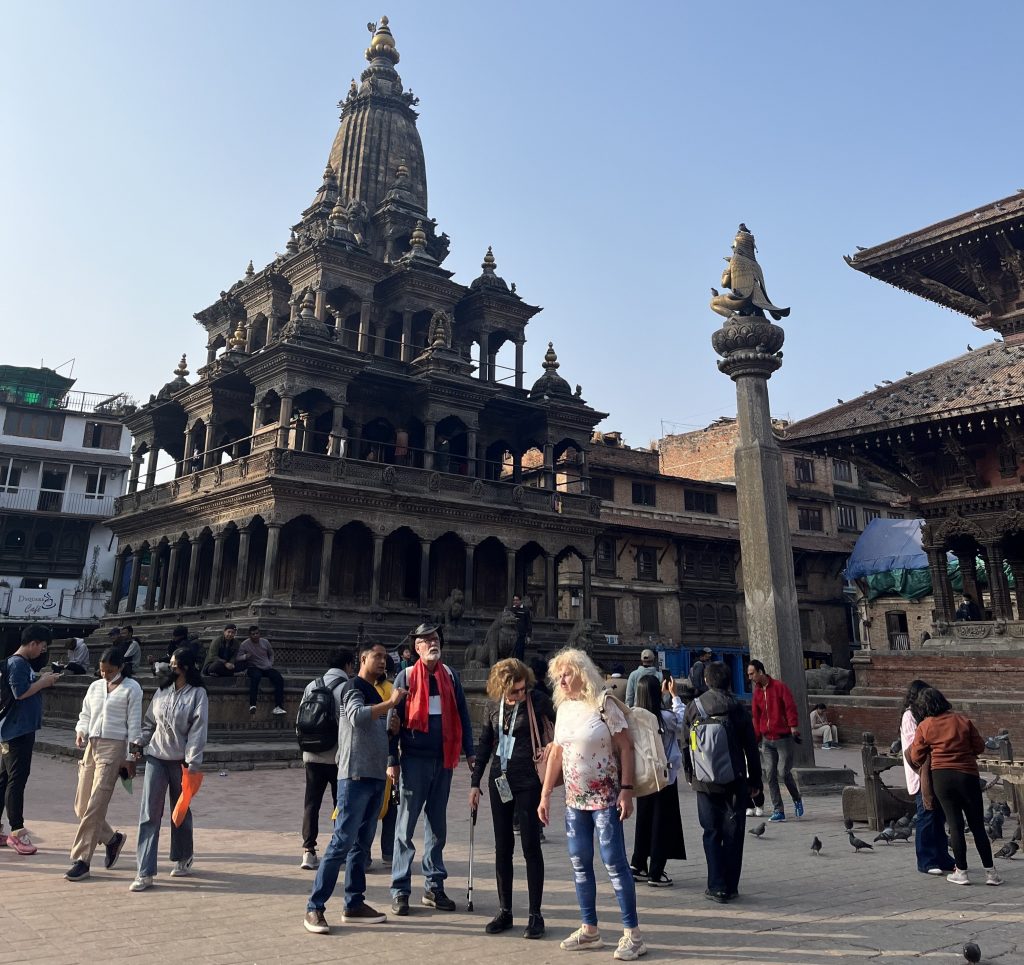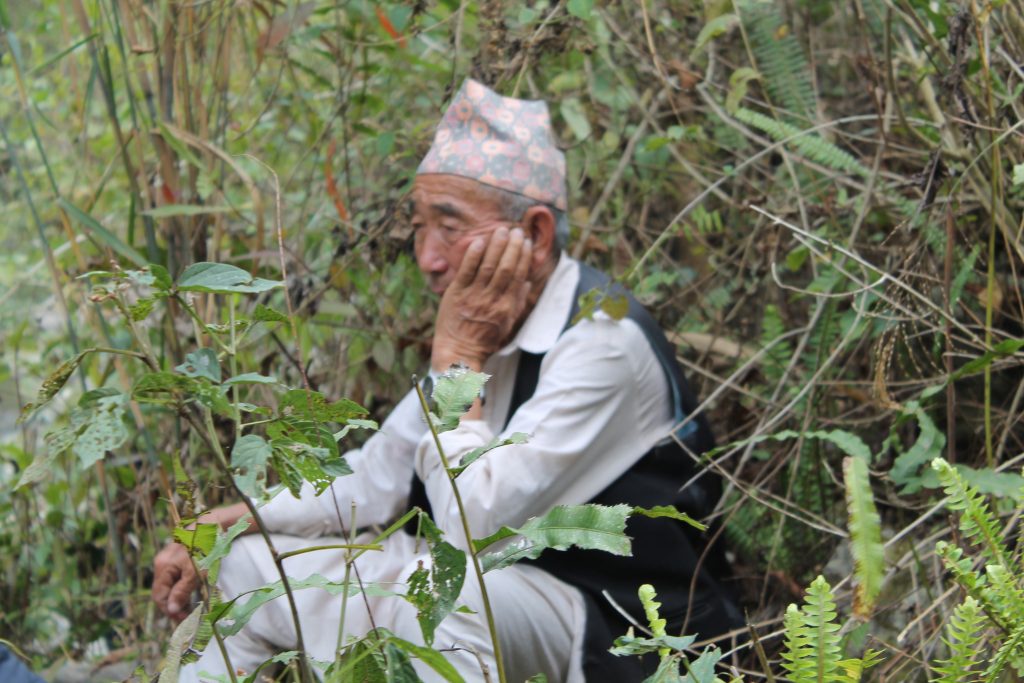“We are Nepali people, tradition is tradition…”

Grief is a universal experience but its expression and meaning can vary greatly. In Nepal, the process of mourning takes form in deep tradition and religious rituals that have been passed down through generations.
When someone passes away, the Kriya, a thirteen-day ritual begins. It is a time where members of the family express their gratitude and honor for the deceased’s life. They do this by performing in various traditions such as the eldest son shaving their head, praying, wearing white, fasting and abstaining from eating food containing meat and salt.
It is designed for the mind to be free and guide peace to the grieving family but, what happens when these rituals meet the realities of a modern and globalized life?
At the age of 11, my grandmother passed away. Hearing the news, my father immediately booked a flight back home to begin the mourning process. It was just my mother, my sister and I left alone pondering what to do, and how can we do Kriya to honor her death whilst living abroad.
My mother ensured that we remain connected to our roots, and explained the process of the traditions we had to follow.
I remember as a child being conflicted in this situation. We tried our best to follow the proper procedures and we did what we could, but I couldn’t help to think this was rather a weird way to remember someone from passing especially if I have only met her briefly in my short time visiting home.
Unlike in Nepal, where my father was surrounded with relatives doing every little bit of Kriya, we were here adapting it to our modern lives by fasting and abstaining from meat and salt.
I felt alienated especially during lunch times, while my friends were there eating, I had to explain why I couldn’t. I felt the disconnect. In the West, grief is often associated with private experience and memorial services that are made to celebrate the life and say their last goodbyes, in contrast to Kriya.

By the thirteenth day, there was an ounce of guilt when we couldn’t deliver my grandmother the ceremony she deserved but at the same time, there was that conflicting mindset that I had. This tension between keeping tradition and adapting to modernity isn’t new. Globalization has brought new challenges to traditions. For younger generations like me, this meant how to balance this desire to honor our upbringing whilst also having that individualism when living abroad.
A family friend of mine once said, “Everyone has different ways of grieving, grieving should not be framed into a time period.” This sentiment resonated with me deeply as while I did do parts of Kriya, my grandma’s absence didn’t hit me until later in my life. It was then when I started to regret the times where I would reject her calls, while my parents would beg me to speak to her on the phone.
In a modern world, adapting traditional rituals to fit your lifestyle doesn’t make your grief less valid or meaningful. Grieving is not about doing rituals ‘perfectly’ but about what feels sincere to you. It may blur cultural lines, but it also allows us to reinterpret traditions and connect with them in our own ways.